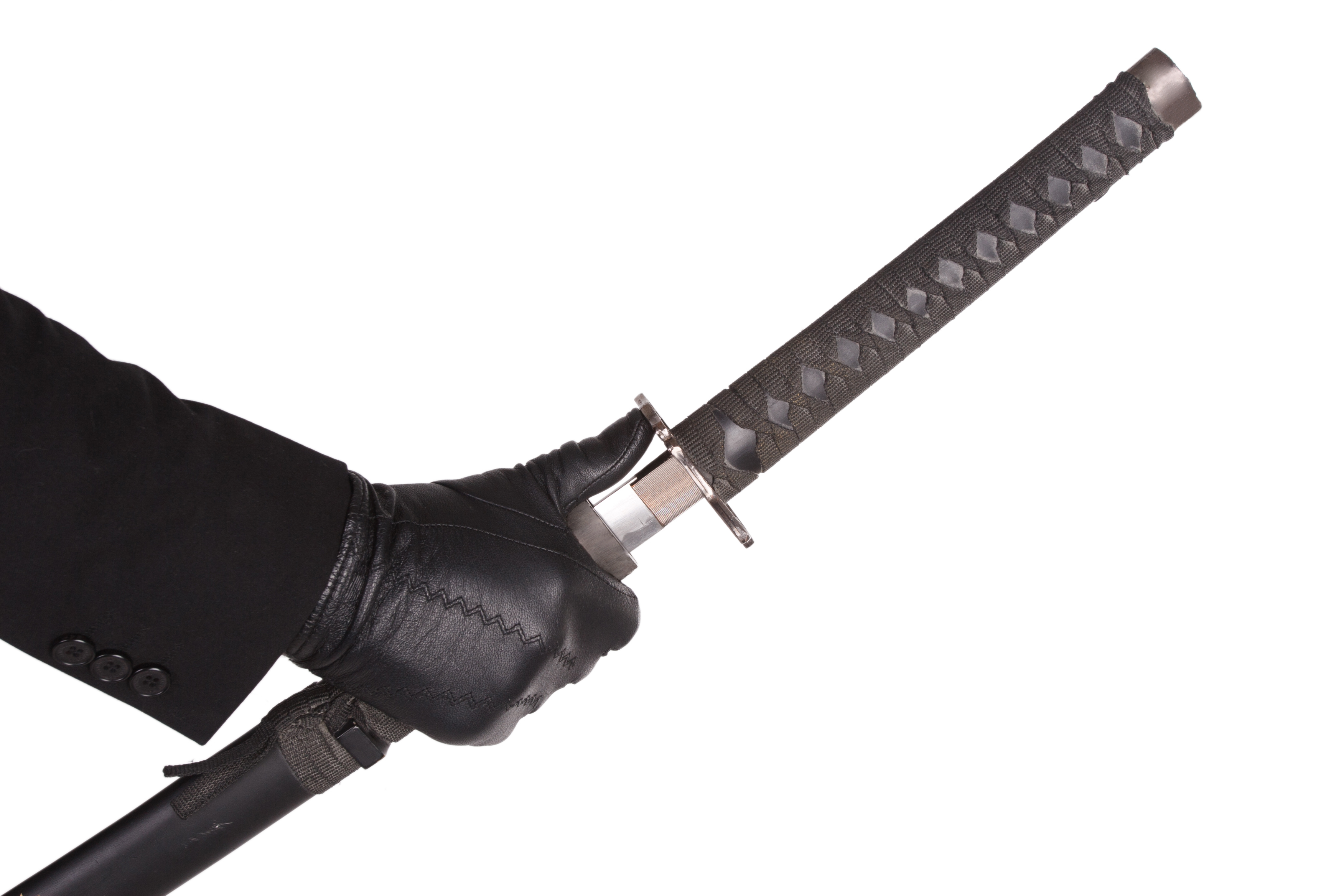Share This Article
Poppy Morandin and Jimmy Singh.
A 31-year-old Sydney man has been acquitted of murder but found guilty of manslaughter, following the killing of a home invader with a samurai sword in 2018.
Blake Davis, and his 26-year-old girlfriend Hannah Quinn faced trials in the NSW Supreme Court over the death of 30-year-old Jett McKee.
Mr McKee had threatened the pair with a fake gun in their inner-city granny flat, before Mr Davis cracked his skull with the sword, outside on the street.
The couple sought to claim self-defence, with Davis asserting that he was acting to save his girlfriend.
The barristers representing Mr Davis and Ms Quinn, Margaret Cunneen SC, and Tom Hughes branded Davis’ actions as heroic.
Comparatively, the prosecution sought to characterise his actions as a “senseless” and “unlawful” attack on McKee.
Evidence was supplied exposing that McKee had a nearly lethal amount of the methamphetamine or ‘ice’ in his system.
The victim had a history of violent home invasions.
During the botched home invasion in which McKee broke into the couple’s home and threatened them at ‘gun point’, Davis was knocked unconscious with knuckledusters and woke to Quinn screaming.
Believing he had been shot, he grabbed the sword and ran towards the sound of her screams, delivering the mortal blow to McKee to “save Hannah”.
Davis supplied evidence that he had feared she would be shot.
The pair left McKee for dead, before going on the run for three days and staying at various hotels.
They eventually handed themselves in at Newtown Police Station.
Justice Adams directed the jury that in order to deliver a guilty verdict for the charge of murder, they would need to believe that the prosecution had proven, beyond reasonable doubt, that Mr Davis did not believe at the time that his conduct was necessary for his or Ms Quinn’s defence.
If the prosecution failed to do so, Justice Adams directed the jury that they would need to consider whether the prosecution had instead proven beyond reasonable doubt that Mr Davis was guilty of manslaughter because he used ‘excessive force’- that his conduct was unreasonable in the circumstances as he perceived them.
If the jury was not persuaded of this, the verdict would be not guilty to both charges.
The jury ultimately determined that Davis was not guilty of murder but guilty of manslaughter.
Quinn was found guilty of being an accessory after the fact to manslaughter.
The pair remain on bail with strict conditions before the matter is scheduled to return to court on 26 February 2021 for sentencing.
Pursuant to section 18 of the Crimes Act 1900 (NSW), an accused will be found guilty of murder if the accused voluntarily did something which causes the death of a person and:
- Intended to kill the victim;
- Intended to cause grievous bodily harm, which entails a really serious injury or permanent or serious disfiguring;
- Foresaw the probability of the action(s) causing death or grievous bodily harm (referred to as ‘reckless indifference to human life’); or
- were committing a crime punishable by imprisonment for life or for 25 years, at the time.
In NSW, a person found guilty of murder may face life imprisonment if the court is satisfied that “the level of culpability in the commission of the offence is so extreme that the community interest in retribution, punishment, community protection and deterrence can only be met through the imposition of that sentence,” pursuant to section 61 of the Crimes Act (Sentencing Procedure) Act 1999 (NSW).
Law on Self-defence for Murder Charges in NSW
Pursuant to section 418 of the Crimes Act 1900 (NSW), a person is not criminally responsible for an offence if the person carries out the conduct constituting the offence in self-defence.
This defence is only applicable if the person believes the conduct is necessary:
- to defend himself or herself or another person,
- to prevent or cease unlawful deprivation of their liberty or the liberty of another person,
- to protect property from unlawful taking, destruction, damage, or interference, or
- to prevent criminal trespass to any land or premises or to remove a person committing any such criminal trespass,
and the conduct is a reasonable response in the circumstances as he or she perceives them.
The prosecution has the responsibility of proving, beyond reasonable doubt, that the person did not carry out the conduct in self-defence, once self-defence is raised by the defence.
If the accused uses force that involves the intentional or reckless infliction of death only to protect property, or to prevent criminal trespass or to remove a person committing criminal trespass, the defence is not available.
If the accused uses force that involves the infliction of death, and the conduct is not a reasonable response in the circumstances as they perceives them, but the conduct is for the limited reasons previously outlined (for protection), an accused may be able to utilise ‘excessive’ self-defence as a partial defence.
Therefore, on a trial for murder, the person may be found guilty of the lesser charge of manslaughter by excessive self-defence, pursuant to section 421 of the Crimes Act 1900 (NSW).
Book a Lawyer Online
Make a booking to arrange a free consult today.
Call For Free Consultation
Call Now to Speak To a Criminal Defence Lawyer
Over 40 Years Combined Experience
Proven SuccessAustralia-Wide
Experienced LawyerGuarantee
 (02) 8606 2218
(02) 8606 2218
 (02) 8606 2218
(02) 8606 2218














